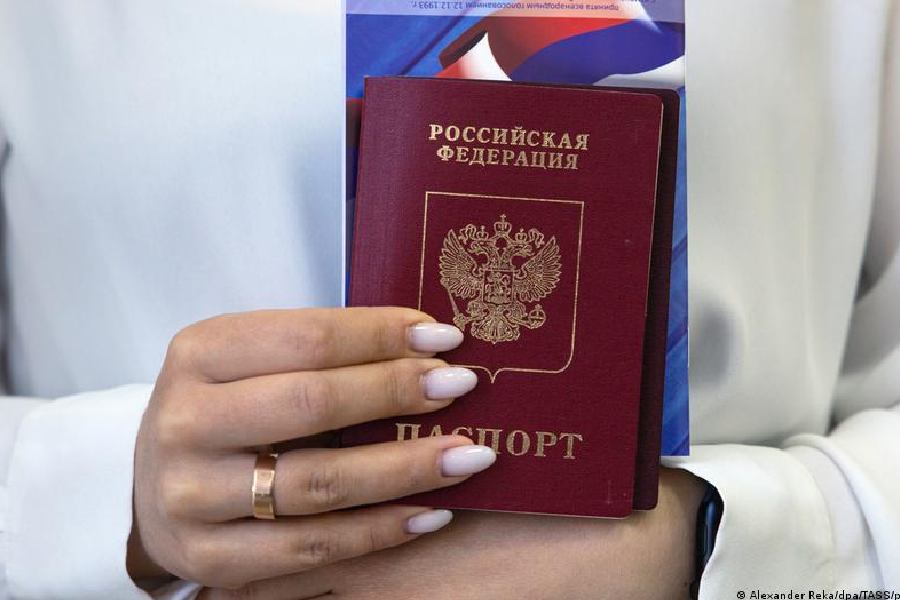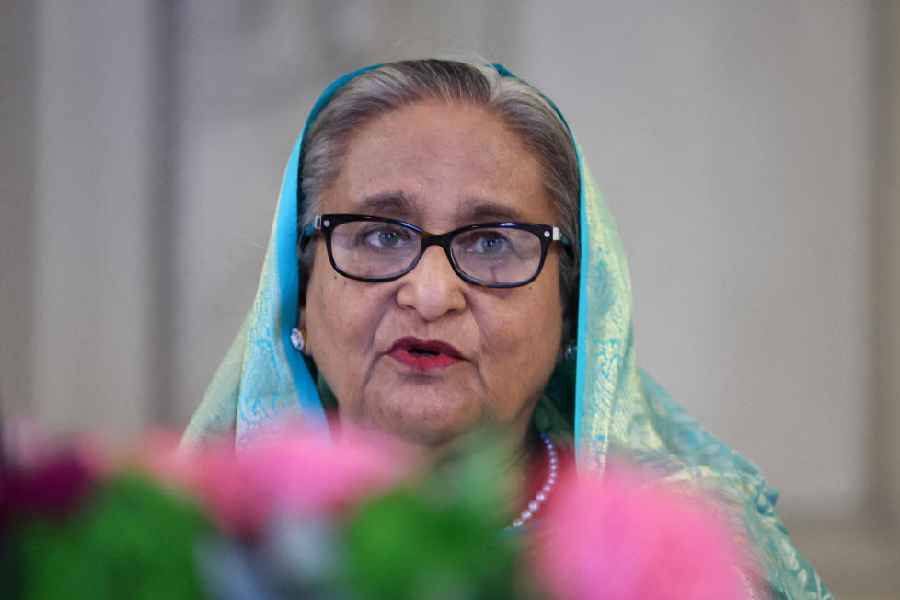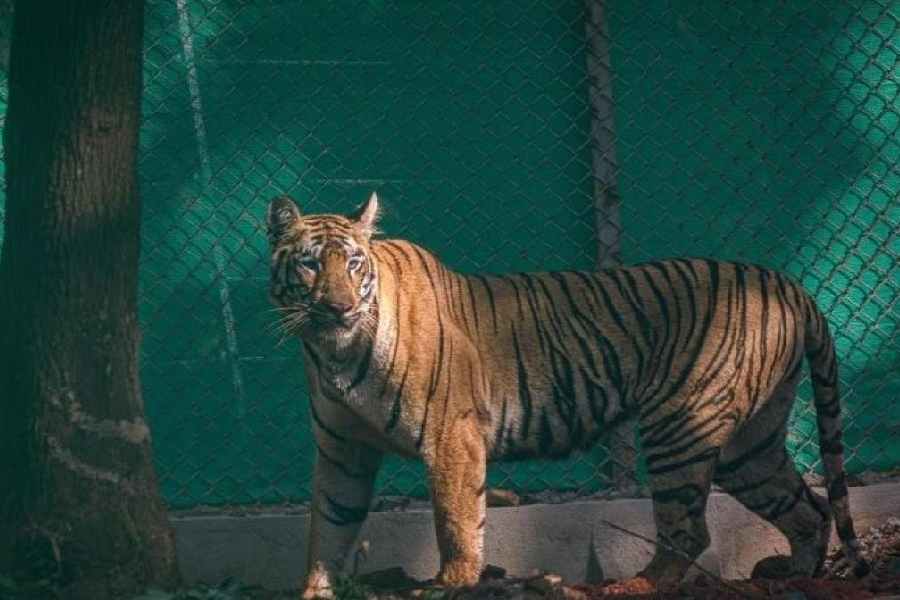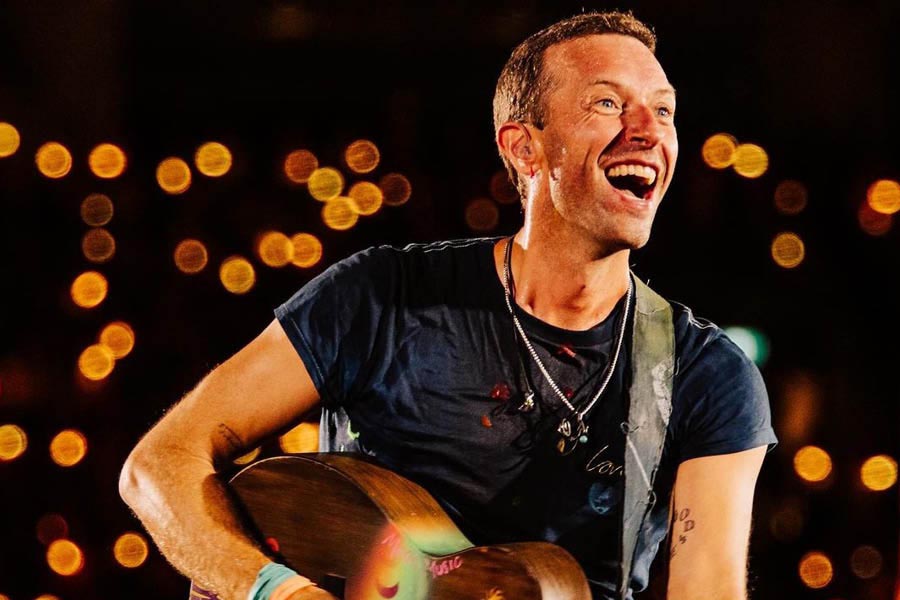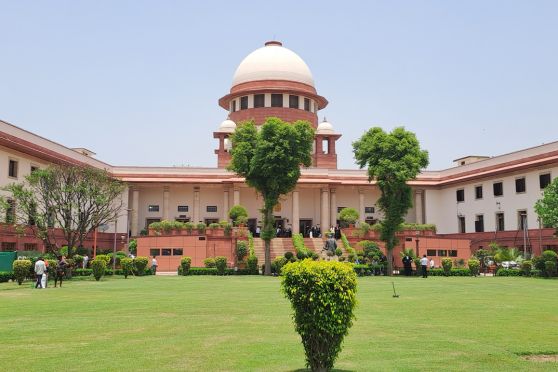Ukrainians living in the occupied east are being forced to take Russian citizenship — otherwise they face deportation. Kyiv is sending mixed signals about what its citizens should do.
A convoy of empty buses sweeps into a town, alongside members of Russia's domestic intelligence agency FSB. They cite a decree issued by the Russian president regarding the deportation of anyone without Russian citizenship from the occupied territories. "They radically demand that people either give up their Ukrainian passport in favor of a Russian one, or their property will be confiscated immediately and they will be resettled," according to the Ukrainian military.
Russian President Vladimir Putin has signed a decree according to which citizens of Ukraine living in the Russian-occupied parts of Kherson, Zaporizhzhia, Luhansk and Donetsk who wish to keep their Ukrainian citizenship can only stay there until July 1, 2024. After that, they can be deported from those occupied regions.
DW spoke to people from the occupied parts of the Kherson and Zaporizhzhia regions who confirmed that Ukrainians are being forced to take Russian passports. For security reasons, none of the people want to be named.
"Russian soldiers searched everything in our house. When I showed my Ukrainian passport, they shouted that I should change it for a Russian one, and that otherwise my car would be taken away, and I would be deported," an elderly man from near Kherson said.
A woman from the Zaporizhzhia region was in tears as she recounted how Russian occupiers threatened to deport her young children to Russia if she didn't immediately apply for a Russian passport.
Another woman was threatened by Russian soldiers who "put a bag over her head" because she refused to change citizenship. "We held out until the end, we didn't want to accept a Russian passport. But it's just unbearable and scary," the woman from near the Azov Sea told DW.
The first deputy chairman of the Kherson regional council, Yuriy Sobolevsky, said the pressure on the people living in the occupied territories has recently increased significantly. "Access to medical care and freedom of movement between cities will be restricted for those who refuse to accept Russian passports," he said. He thinks the Russians are now resorting to terror because not as many people in those territories want to become Russian citizens as Moscow had hoped.
According to the British Ministry of Defense, Moscow apparently wants to speed up the integration of the occupied territories into Russia to sell the invasion of Ukraine as a success to its own people, particularly in the run-up to the 2024 presidential election.
But people are afraid of ending up in Russian databases, a young man from Khrustalnyi in the Luhansk region told DW. He's from an area which has been occupied since as early as 2014. Many don't know what to do. "More and more employers are demanding a Russian passport," the young man explained. But anyone who applies for a Russian "residence permit" is handing themselves over to the occupying forces. Then there is also the risk of being drafted into the war.
Should people have a Russian passport forced on them or not? There are conflicting takes on this among Ukrainian politicians. Dmytro Lubinets, human rights commissioner in the Ukrainian parliament, said on TV that Ukrainians in the occupied territories should accept Russian passports if they fear for their lives. He stressed that Ukraine does not recognize such forced passports and that it would not mean that they lose their Ukrainian citizenship.
However, the Minister for Reintegration of the Temporarily Occupied Territories, Mychajlo Podoljak, said Ukrainians should not accept Russian passports. "Do not cooperate with the occupiers, do not accept Russian passports, flee if possible or wait for our army," she said on TV.
"I'm ashamed and afraid to accept a Russian passport, but I'm also afraid of being deported," said one desperate woman from the occupied part of the Kherson region. "We can't leave, as the Ukrainian authorities advise us, because we have an old, sick mother."
According to Alyona Lunyova from Ukraine's ZMNINA Human Rights Center, the contradictory advice from Ukrainian officials is confusing people. She stressed that living under occupation is not a crime. "On the contrary, not everyone should leave the occupied territories, it shouldn't become an empty country and we cannot take in four to five million people from there." She added that it is not a crime to accept a Russian passport under duress.
Meanwhile, an adviser to Ukraine's presidential office, Mykhailo Podolyak, said Lubinets' and Vereshchuk's advice was not contradictory. He tweeted this advice for Ukrainians in the occupied territories: "If it is possible not to take a Russian passport, then try not to take one. But if you have to take a Russian passport to avoid oppression and torture, then take one."
Podolyak stressed that Ukraine would not persecute citizens who "passively obtained Russian citizenship."

